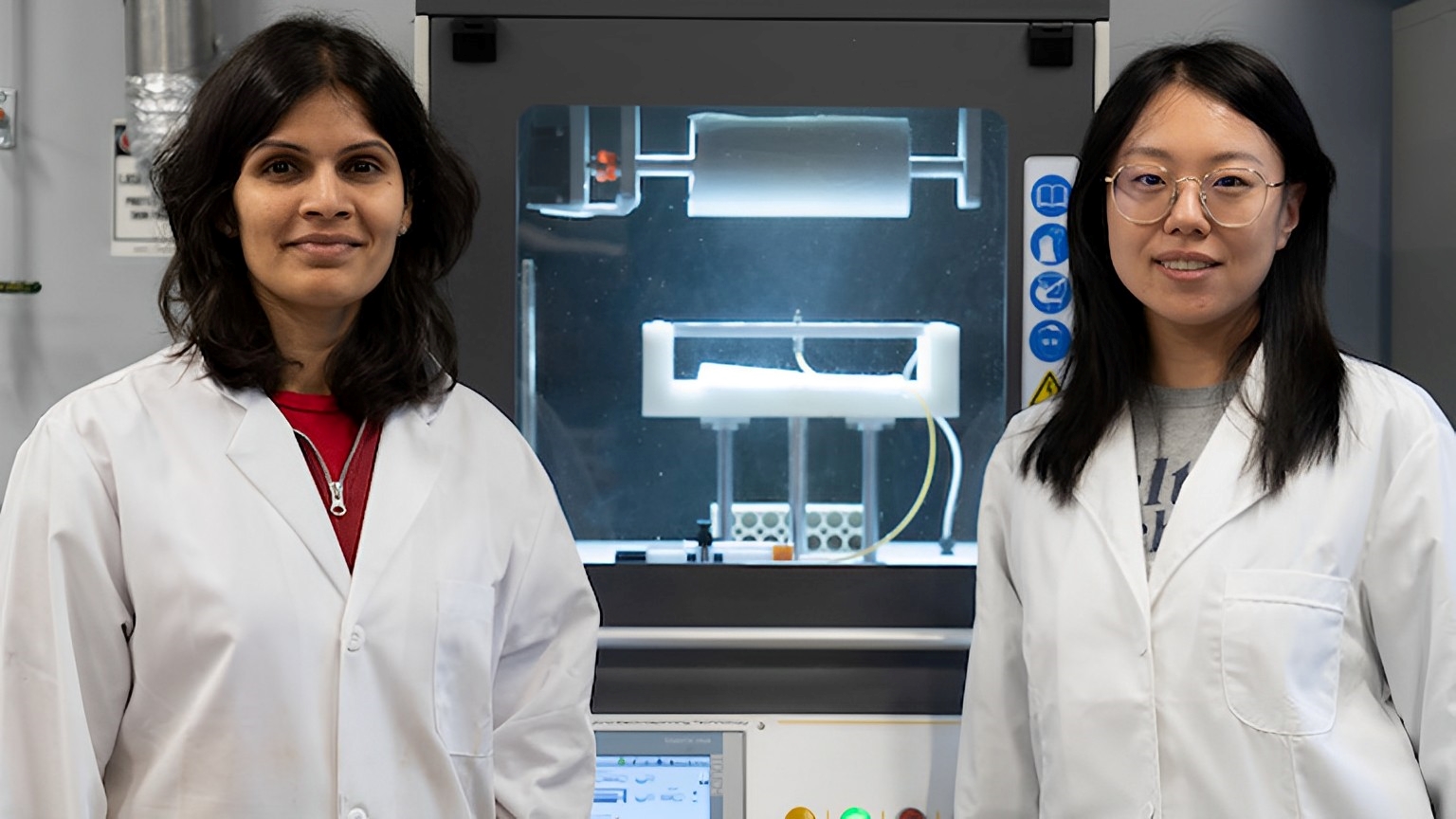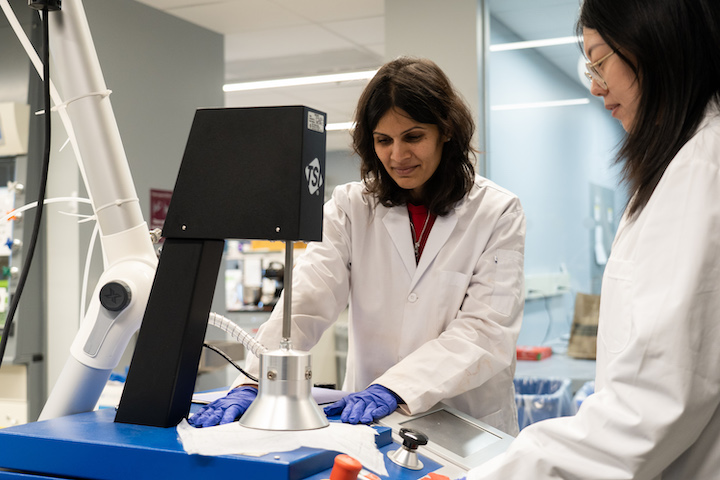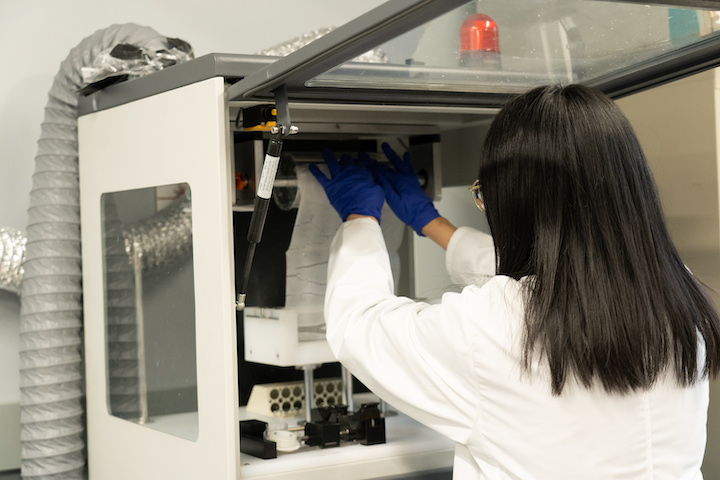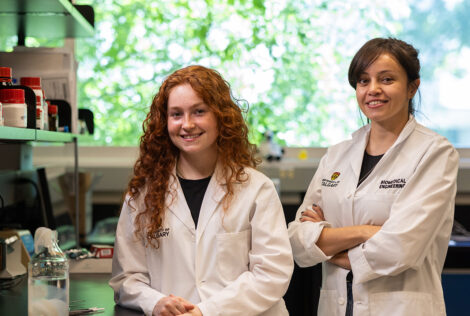

A biodegradable mask that can comfortably protect its wearer without harming the environment is one step closer to reality, thanks to research at McMaster’s Centre of Excellence in Protective Equipment and Materials (CEPEM).
An effective compostable and breathable air filter made from corn-based protein has been developed by post-doctoral research fellow Sneha Shanbhag and PhD candidate Rong Wu.

It’s a breakthrough that offers promise for a sustainable line of personal protective equipment, says Ravi Selvaganapathy, the centre’s director and a professor of mechanical engineering and biomedical engineering at McMaster.
Finding ways to green the PPE industry has always been a goal of CEPEM, which opened its doors in June 2020 in response to the urgent need for Canadian expertise in the field.
“Many of the high-quality filter materials used in PPE are made from fossil fuel derived materials that don’t naturally degrade in the environment,” says Selvaganapathy.
“These are forever materials that are going to remain behind if they’re not disposed of properly and there’s no good mechanism to dispose of them.”
Seeing piles of discarded face masks motivated Shanbhag and Wu to find a more environmentally sustainable way to keep people safe.
“We both care a lot about the earth and the environment and wanted to see a biodegradable option developed,” says Wu.

Zein, a corn protein with low nutritional value that could potentially be sourced from agricultural waste, offered promise as a cost-effective plant-based polymer.
The pair developed a viable filtration material by electrospinning zein onto a paper base. They improved the filter’s durability and humidity-resistance by crosslinking the zein with citric acid, to stop it from swelling, cracking or peeling off the paper backing.
And after testing of assorted designs, they discovered that stacking the fibres into a pleated filter improved its breathability over longer-term use, while maintaining filtration qualities appropriate to an N-95 level mask.
Trials found the material would break down within about a month, making it a viable biodegradable alternative to the polypropylene-based filters in masks and respirators.
I think there’s a lot of interest in the industry and the research community to produce biodegradable materials but there is a gap between our knowledge of those materials and transforming them into functional PPE,” says Shanbhag. “We recognized the opportunity to use the centre’s capabilities to develop something useful that could potentially be a solution for years to come.
Selvaganapathy says the research is a very promising start toward creating viable biodegradable made-in-Canada PPE.
Along with integrating antimicrobial properties into the material, the centre will explore using other natural polymers, such as extracts from corn husks or wheat, to further improve the filter’s structure.
“For example, if we blend cellulose with zein to get better structural properties, we could remove that underlay of paper and have one material that is strong, with good filtration.”
Using plant products that are currently going to waste offers a cost-effective supply of raw material to keep biodegradable masks financially competitive, says Selvaganapathy.
But it also diverts those products from the waste stream, where they would otherwise add to greenhouse gases when burned or disposed of in landfill.
“By repurposing these materials, I think there’s a lot of value added to this.”
Shanbhag is also developing a bio-polymer based material with elastic properties that could potentially be used for mask ear straps in the future.
The industry is looking for cost-effective biodegradable materials to build green lines that will differentiate their offerings, Selvaganapathy says.
“There is a significant amount of interest in biodegradable masks,” he says. “Sustainability has become a very important criteria for almost all of the manufacturers in Canada.”
The centre focuses the ingenuity of McMaster engineering research on the challenges of next-generation PPE, says John Preston, associate dean, research, innovation and external relations with the Faculty of Engineering.
“We see our research and development helping Canadian companies become global industry leaders.”


